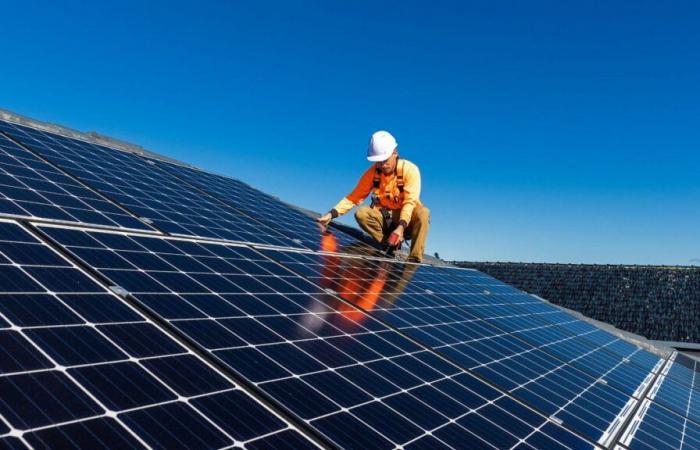German demand for solar panels has been affected by the cost of living crisis, foreign competition and high interest rates.
ADVERTISEMENT
The German residential solar panel sector is currently experiencing a significant decline, following a drop in customer demand. This led to an increase in layoffs and bankruptcies among solar panel installation and distribution companies.
The drop in demand has also contributed significantly to the fall in solar panel prices, while leading to an oversupply of panels in Germany.
This situation threatens toaffect investor and consumer confidence in the solar panel sector and even jeopardize the EU’s climate targets.
Other large European economies, such as Belgium and the Netherlands, are also facing a decline in interest in solar energy.
Why is the German solar panel industry weakened?
Germany has experienced a rise in demand for solar panels after the start of the war between Russia and Ukraineagainst a backdrop of escalating energy prices and concerns about the EU’s energy security.
In the first nine months of 2024, more than 11 gigawatts of solar power were installed in Germany, according to Ember, representing an increase of 3% compared to the same period the previous year.
The rise has been supported by an abundance of government subsidies and aid to Germany’s renewable energy sector, with the aim of reducing the country’s dependence on Russian energy.
However, after recording significant profits for several months, the residential solar panel sector has since seen a significant decline.
This is mainly due to the ongoing cost of living crisis, which has deterred many customers from investing in often expensive solar panel installations.
Relatively high interest rates for several months also made financing packages for solar panels more expensive, further dampening demand.
Less favorable measures and increased competition
By mid-2024, the German government has also announced its intention to reform and reduce some of its subsidies for renewable energy.
Among other changes, renewable energy projects are now likely to receive fewer subsidies when storage facilities are sufficient.
Falling energy prices in recent months have also made the costs of installing solar panels less attractive for many consumers.
Finally, the German solar panel market, like its automotive sector, has been seriously affected by intensifying competition from Chinese rivals, who are often much cheaper than domestic offerings.
This situation has led several small solar panel companies to consolidate to avoid bankruptcies and strengthen their market position, while staying away from most new investments.
However, Germany also saw an increase in mini photovoltaic systems in 2024, which reflects the continuing interest of a significant part of the German population in ecology.






